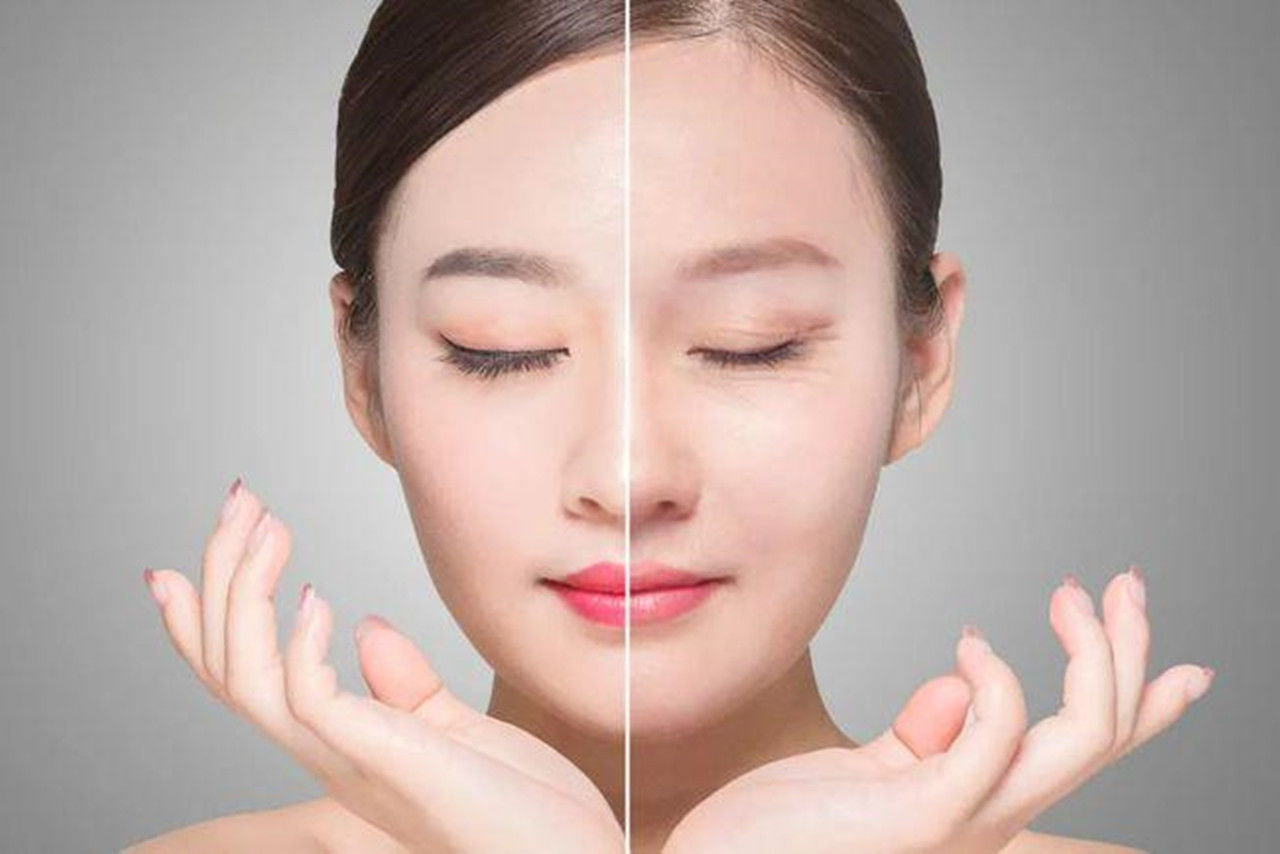Skin is the largest organ in the human body. Due to various external and internal factors, its texture and structure undergo various changes. Signs of aging include a gradual decrease in moisture content, sagging, and the appearance of wrinkles and spots. Therefore, daily skin care can slow down the aging process and prevent signs of aging.
Causes of skin aging:
Congenital factors
Genetics
It is mainly affected by genes. For example, the skin of Europeans and Americans ages faster than that of Asians, while the skin of black people ages more slowly.
Increasing age
As we age, the reticular fibers in the skin degenerate, causing the skin to lose elasticity and age.
Acquired factors
UV rays
Ultraviolet rays in sunlight accelerate skin oxidation, destroy the skin's collagen tissue, and cause the skin to lose elasticity and become rough.
Glycation
Eating too much high-sugar and carbohydrate foods will increase the sugar level in the body. The sugar will combine with the collagen in the skin to produce synthetic AGES, which will cause collagen loss and the skin will become loose and yellow.
Eating habits
The body is made up of food and water. Imbalanced nutrition makes it difficult for the body to produce new cells and repair damaged cells. When the body fails to absorb sufficient nutrients, cell death outpaces growth, accelerating aging. However, consuming too much nutrition can also increase oxidation in the body, further accelerating aging.
Lack of sleep
Sleep is a time for cells to rest and recuperate. Sufficient sleep can help repair damaged cells. Insufficient sleep can particularly affect liver function, impairing the detoxification system and affecting the repair capacity of cells, including the skin.
Free radical damage
Air pollution, stress, poor diet and lifestyle habits can increase free radicals in the body, which can oxidize cells and accelerate skin aging.
Smoking
Smoking reduces blood circulation, reduces nutrients and cell healing capacity, and reduces the ability to scavenge free radicals, thereby accelerating skin aging, causing wrinkles and dry skin.
disease
Long-term illness and some genetic diseases impair body functions and accelerate skin oxidation and aging.
Insufficient external moisturizing
Insufficient skin moisturizing will cause the skin to become dry and prone to moisture loss, accelerating oxidation and wrinkle formation.
Skin anti-aging principle:
From the principle of skin aging, the skin is composed of three layers: the "epidermis", "dermis" and "subcutaneous tissue", which are also the most obvious parts that affect facial skin aging.
Epidermis
The outermost layer of human skin, composed of keratinocytes and containing melanocytes, primarily functions to store water. This layer undergoes a 28-day turnover cycle. However, with aging and environmental factors, keratin turnover slows, leading to abnormal accumulation of dead skin cells, causing moisture loss and roughness. Excessive sun exposure promotes melanin deposition in the epidermis, causing dark spots and darkening.
dermis
Collagen and elastic fibers can provide support and elasticity to the skin, and secrete nutrients to supply the epidermis. However, when the production capacity of fibroblasts decreases, collagen decreases, and the dermis becomes thinner, the skin's support will be reduced, and it will lose its elasticity and moisture.
subcutaneous tissue
This is where fat cells are located, affecting the appearance of fullness in the skin. When fat is lost, wrinkles, sags, and other signs of skin aging occur.
Characteristics of skin aging:
wrinkle
There are two main causes of wrinkles:
- The skin's epidermis lacks moisture, causing the stratum corneum to shrink and sag due to lack of moisture, resulting in pseudo-lines, which mostly appear on the cheeks and corners of the mouth.
- The loss of collagen and elastin in the dermis causes the muscle base to lose its support, resulting in the skin becoming concave and loose starting from the epidermis, forming deep lines.
relaxation
The loss of collagen and elastic fibers causes the skin to lose elasticity and be unable to withstand the pull of gravity, resulting in sagging of the face.
Dark
Dull skin can be divided into three categories:
- Grayish-toned dead skin cells accumulate and appear dull. With aging, dryness, staying up late, or fatigue, the skin's metabolism becomes disrupted, leading to an excessive accumulation of dead skin cells on the surface, making it difficult for the skin to reflect light.
- Yellowish-brown dullness caused by glycation. When too much sugar accumulates in the body, it reacts with proteins and collagen to produce AGEs. Since AGEs are yellowish-brown in color, their accumulation in the dermis can cause the skin to become dark yellow.
- Third, the common problem of melanin darkening. When the skin is stimulated by ultraviolet rays, the secretion of melanin will be accelerated, affecting the overall skin tone and causing dark spots.
spot
When the body is exposed to external environmental stimuli such as ultraviolet rays and air pollution, free radicals in the body will activate tyrosinase in melanocytes to synthesize melanin. The accumulated pigment will decrease with metabolism. However, when the skin metabolism is abnormal or there is long-term external environmental stimulation, if melanin production is greater than metabolism, it will accumulate in the epidermal cells and slowly float up to the stratum corneum, forming visible spots.
Rough
The stratum corneum is dehydrated or has metabolic problems, the stratum corneum is disordered, old and dead skin cells accumulate on the top, or are unevenly arranged due to dryness, and the skin naturally feels very rough.
dry
Reduced skin moisture levels are caused by problems with the keratin's moisturizing system, leading to dehydration of the keratin and the continuous loss of moisture. When keratinocytes cannot function properly, problems such as roughness, acne, breakouts, fine lines, scaling, dryness, and itchiness can follow.
Large pores
Oily skin, due to excessive oil secretion and the lack of proper removal of dead skin cells, can clog pores. If the pore walls are continuously stretched, they can lead to enlarged pores and the appearance of breakouts and blackheads. Furthermore, when facial skin becomes sagging, gravity pulls the pores into droplets, creating larger pores. In severe cases, the pores can even connect to form a line.
Small ways to prevent and improve skin aging:
Work and rest
Lack of sleep can easily lead to fatigue and also hinder the production of collagen in the skin.
diet
Avoid consuming too much stimulating and saccharified food, cook food by steaming or boiling as much as possible, and eat more antioxidant vegetables and fruits.
maintainance
It needs to absorb collagen to stabilize the dermis and maintain the skin's elasticity and firmness; the stratum corneum needs to maintain a healthy water content to ensure normal keratin metabolism and normal function of the skin barrier.
The above are common signs of skin aging and how to prevent them. Daily care can delay skin aging, and choosing the right skincare products for your skin can provide the best nourishment and care.
Fermiken's MEI Time. Essence boasts six key benefits: wrinkle smoothing, firming, contouring, whitening, and spot reduction, as well as cell renewal, repairing damaged cells, and awakening cellular memory to comprehensively repair skin aging problems. It utilizes highly hydrating Nano Bubble water molecules combined with patented ACTISYNTHESIS TECHNOLOGY technology to deliver rich nutrients directly to the dermis, allowing the underlying cells to fully absorb these nutrients, restoring skin's elasticity, firmness, and hydration. Furthermore, MEI Time. Essence contains 400 million negative ions that help activate and repair the function of deep-seated cells, promoting collagen regeneration and minimizing wrinkles.
This beauty peptide contains two protein peptides (Japanese collagen peptide and Japanese bonito elastin peptide). These peptides work together to stimulate dermal fibroblasts to combat aging and promote collagen and elastin synthesis, restoring skin's elasticity and firmness. Combined with a variety of antioxidants (Norwegian natural blueberry extract, Tahitian natural Noni fruit extract, and Bulgarian rose placenta extract), it comprehensively protects against free radical damage. Rose placenta extract enhances the activity of epidermal growth factor (EGF), limiting melanin production. Japanese hyaluronic acid acts as a skin scavenger, protecting skin cells from external environmental aggressors. Highly effective moisture-locking molecules maintain long-lasting hydration and radiance.
Combining topical and internal application can double the effect. Click here to receive a free sample of the MEI Peptide. To learn more, please click here to visit the MEI Time.Liquid or MEI Peptide product pages.



